Video by Ben Ward
Josett Valdez (B.A., ’01, speech communication), chief development officer for the Red Cross of Colorado and Wyoming, comes to her leadership strengths by way of being a self-proclaimed introvert.
“I’m more reserved,” she says, pointing to Susan Cain’s 2012 bestseller, Quiet: The Power of Introverts in a World That Can’t Stop Talking. It’s a handbook for explaining the power and intelligence that introverts bring to teams and leadership. “It’s me in a book.”
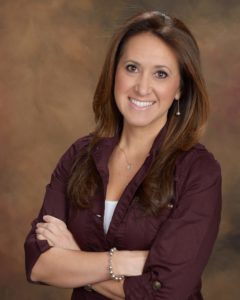 Although noted for their quietness, introverts are introspective and reflective. Valdez has consistently drawn on those strengths across the trajectory of her academic and professional life.
Although noted for their quietness, introverts are introspective and reflective. Valdez has consistently drawn on those strengths across the trajectory of her academic and professional life.
“I remember the first speech I ever had to give in a public speaking class at CSU,” she says. “I realized that speaking in front of people doesn’t have to be traumatic if you prepare.” She devised a methodical approach to a task that she otherwise would not have chosen for herself (the class was required).
Preparation, she reflected, was everything – even when it came to talking with a professor after class.
“I think about that now when I go to speak with someone from a large corporation,” Valdez says. “It’s a one-on-one conversation, but you have to prepare. You don’t show up unprepared.”
A career with Red Cross
“I was learning in the early 2000s that you shouldn’t plan on leaving a place the same way you came in,” she says. “Now it’s the world in which we live.”
After graduate school, Valdez wanted to return to the Red Cross. She had fallen in love with its humanitarian mission, scope and impact.
“The Red Cross can set up a Fortune 500 company overnight and staff it with volunteers,” she says.
Valdez was offered an administrative position and took it. In time, her disaster experience paid off. She transitioned to a position as a training, preparedness and education coordinator, and was soon deploying and training volunteers at disaster zones around the country.
“I would have never thought that would be the trajectory of my life,” she says. “But you’re there for someone on the worst day of their life. It’s pretty awesome.”
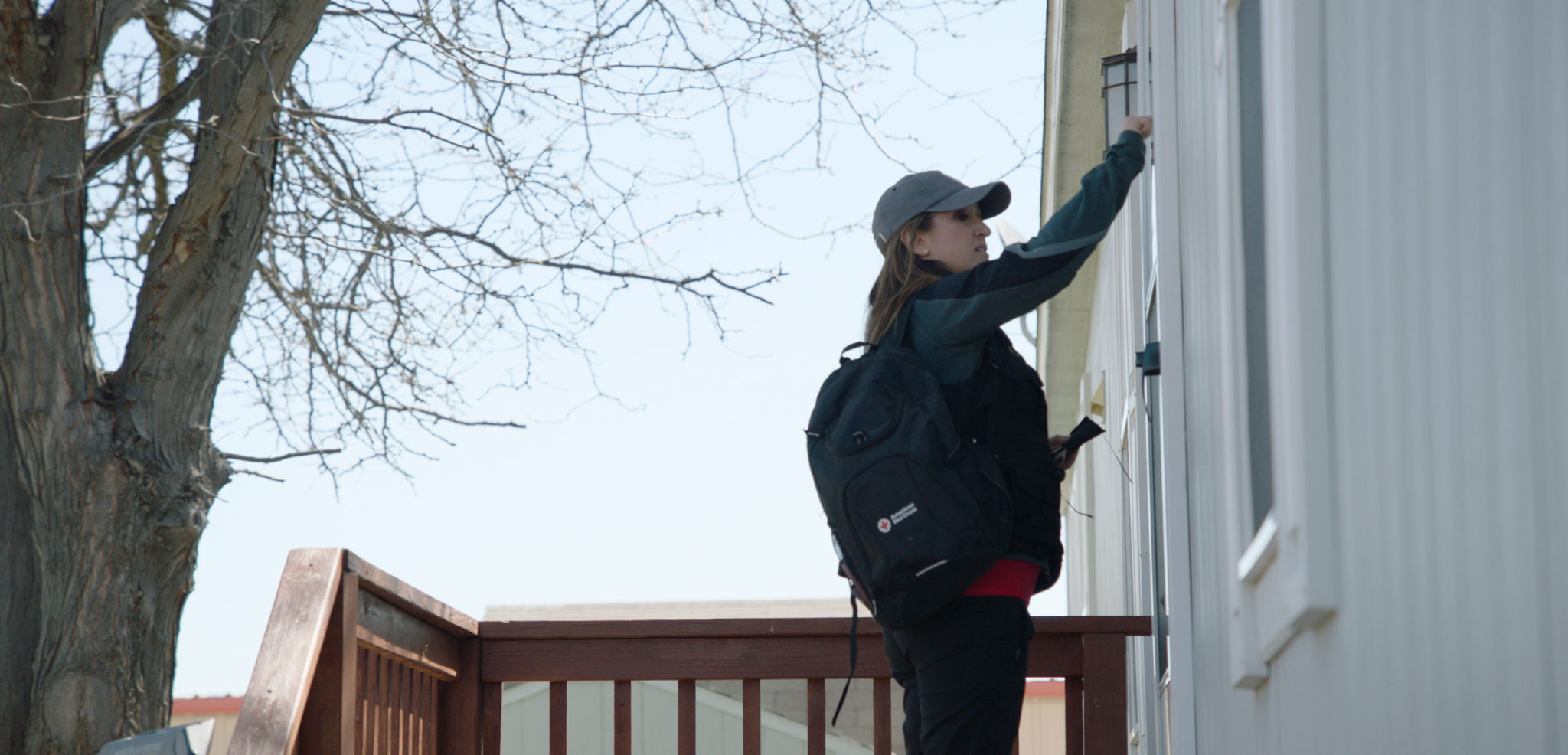
Valdez has spent the bulk of her Red Cross career in several capacities within the Service to the Armed Forces (SAF) program. She has worked closely with the Office of the Secretary of Defense and Department of Defense to help provide support to military families and veterans. She eventually became director of the Southwest and Rocky Mountain Division of the SAF and excelled at policy and procedural oversight.
Discovering a leadership role
Valdez’s engagement with people shifted. She had spent years working independently, and meetings she had organized and executed were mostly one-on-one with people she might not see again. Now she was participating in team meetings on a consistent basis. Her quietness kicked in then.
“I’m an observer,” Valdez says. “We’d be sitting around having major strategy sessions, but I never contributed.”
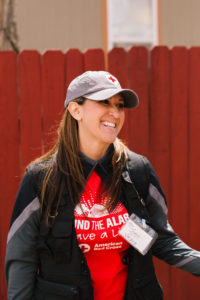 Not because she didn’t want to, but because she didn’t yet have the skills to communicate what her introverted mind needed to lead: more time and space to process information, communicate ideas, and make decisions.
Not because she didn’t want to, but because she didn’t yet have the skills to communicate what her introverted mind needed to lead: more time and space to process information, communicate ideas, and make decisions.
Valdez’s quiet nature left her colleagues thinking she didn’t want to work with people. They also thought she might never be a good leader. She received that specific feedback during a 360 review during a Red Cross leadership development program.
“It was earth-shattering news to hear,” Valdez says.
She made it a priority to prove to herself, more than anyone else, that she could not only lead, but develop others, too. She found mentors. She read Quiet. She looked for leadership opportunities. She overcame the dread of networking events by adopting her methodical approach. She learned that just because she was quiet didn’t mean she couldn’t lead.
“I just had to find another way,” Valdez says. “I had to learn to say, ‘Hey, I have a thought. I just need to think through this a little more. I would like to come back to it.’ I spent the next several years making that a priority of who I am.”
“Now she’s the one who is leading the conversation,” says KCNC-TV Community Affairs Director Elaine Torres. Torres met Valdez in 2015 when she became a board member of the Red Cross of Colorado. “She recognized that she has a voice. It’s exciting to see.”
Team-building
Valdez’s drive to develop her leadership style has paid off. In 2018, the Denver Business Journal named Valdez one of its 40 Under 40 winners. She also became the chief development officer for Red Cross of Colorado and Wyoming – without ever having asked a potential donor for a large contribution.
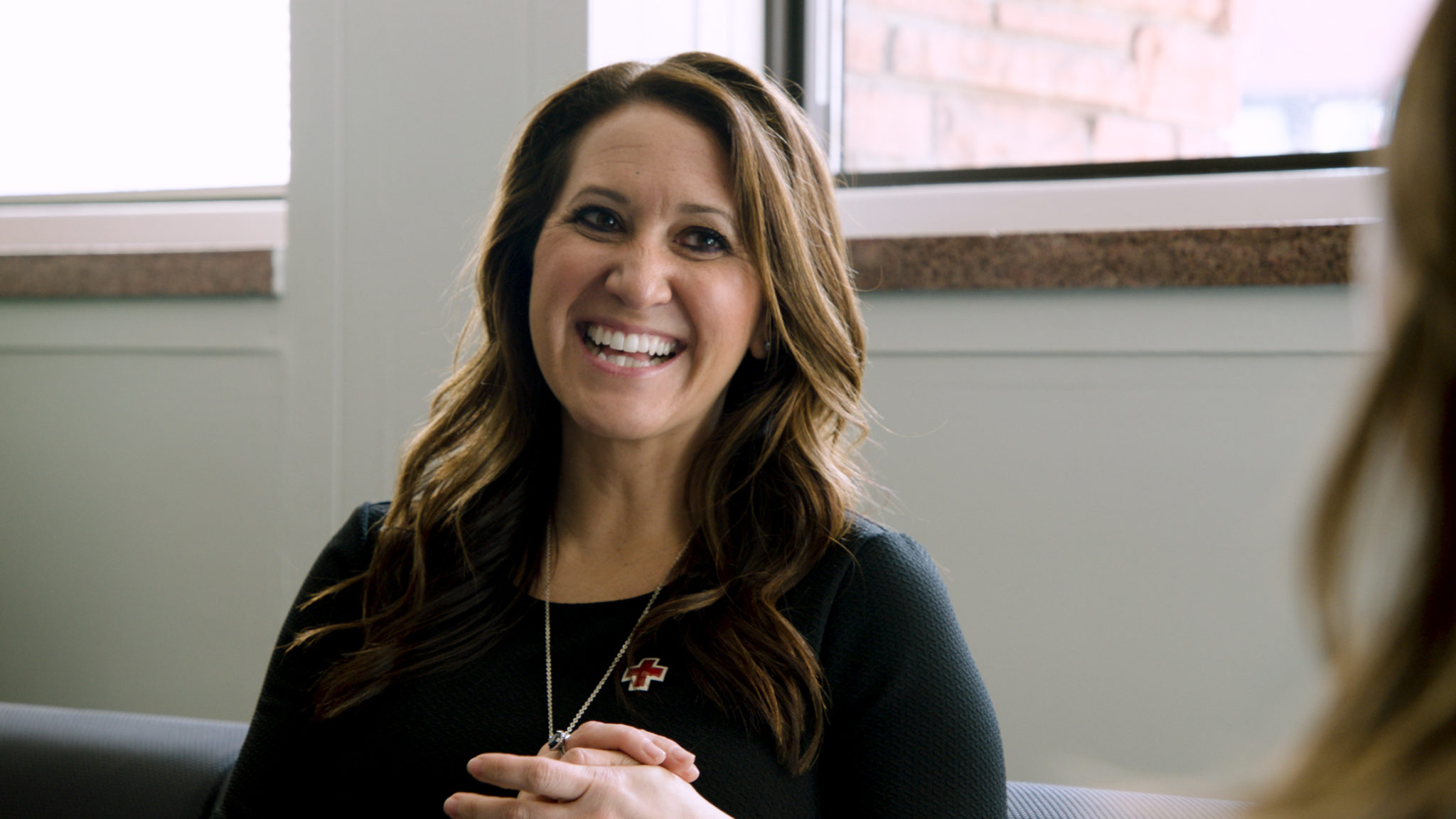
It wasn’t her fundraising ability that elevated her to the position. She was hired because of her leadership skills.
“I’m super passionate about culture and leadership development and building teams that like each other,” Valdez says. “I’ve spent the last year and a half developing an amazing team. We drive for results.”
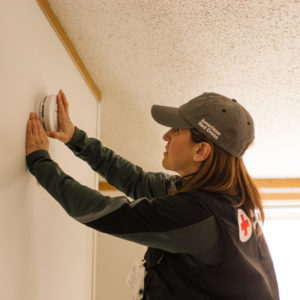 In 2019, her 12-person team far exceeded its annual fundraising goal of $7 million, bringing in nearly $9 million to support Red Cross initiatives.
In 2019, her 12-person team far exceeded its annual fundraising goal of $7 million, bringing in nearly $9 million to support Red Cross initiatives.
Today, Valdez places significant emphasis on helping her team members thrive in whatever capacity they identify as a growth area for themselves – as professionals, fundraisers, and leaders – whether inside or outside of the Red Cross.
“She’s been true to herself and helped me develop my own leadership style,” says Jenni Gasborro, who has worked with Valdez for 11 years and is now director of development on her team.
“She puts the bar high for herself and has this really great way she goes about setting high expectations for others,” Gasborro says. “She has a beautiful pragmatic spirit that pairs a no-nonsense, solutions-based sensibility with a deep commitment to alleviating human suffering.”
“Competition has never not been one of my strengths,” Valdez says. “But it’s competition with myself to be the best and have the best team and people around me. If I do that, then I will hopefully have impacted and changed the organization, and hopefully somebody’s career, for the better.”